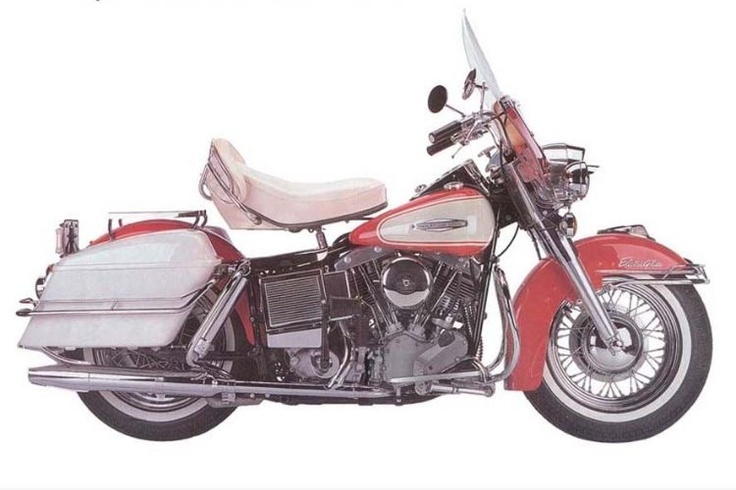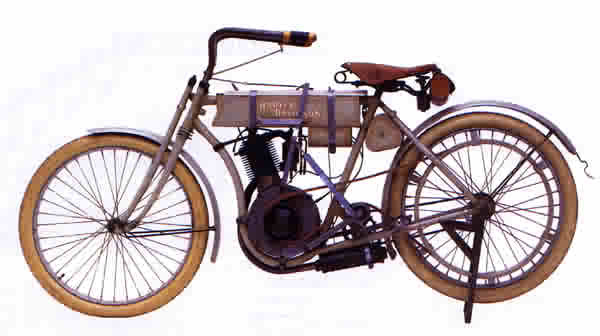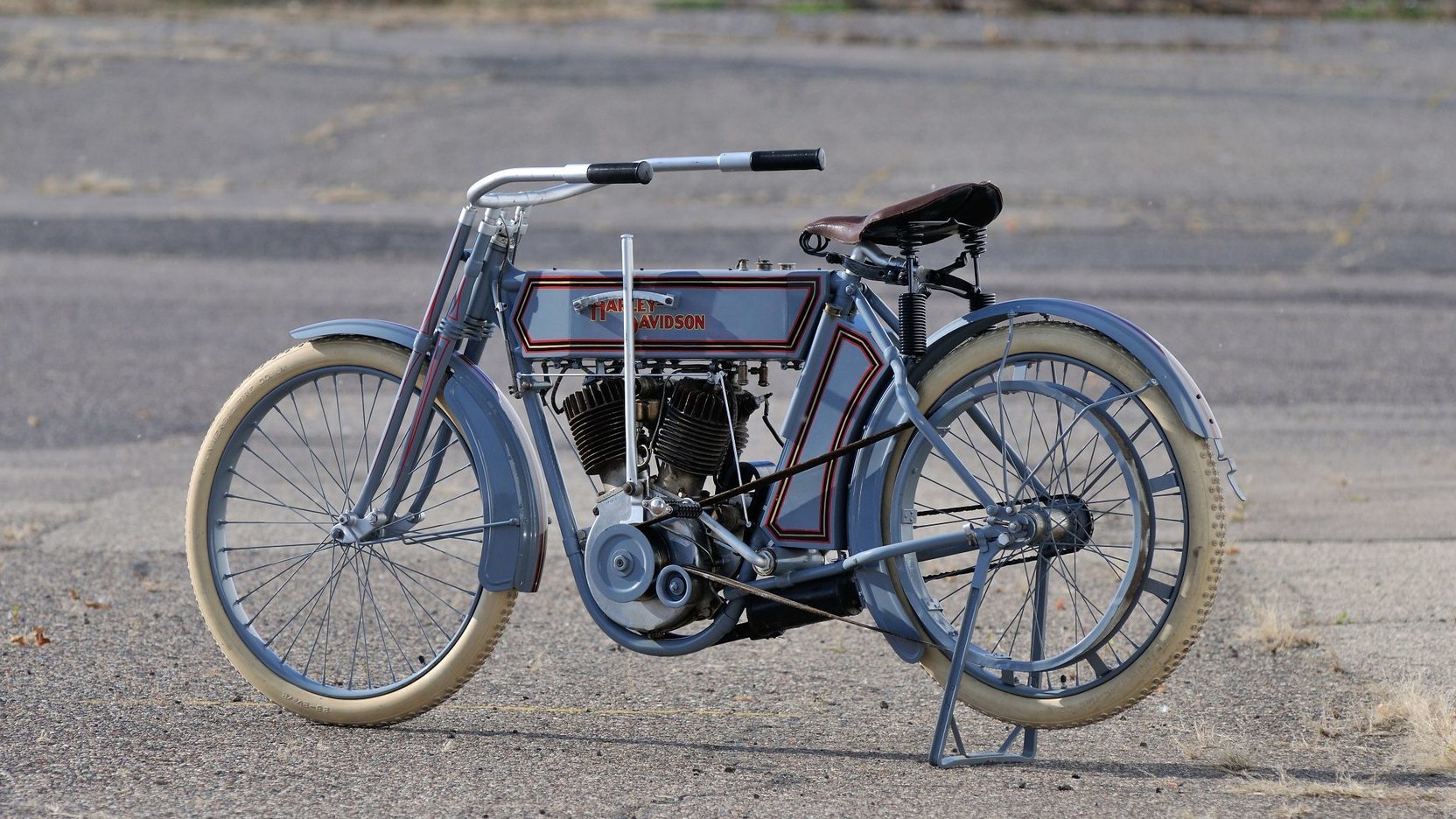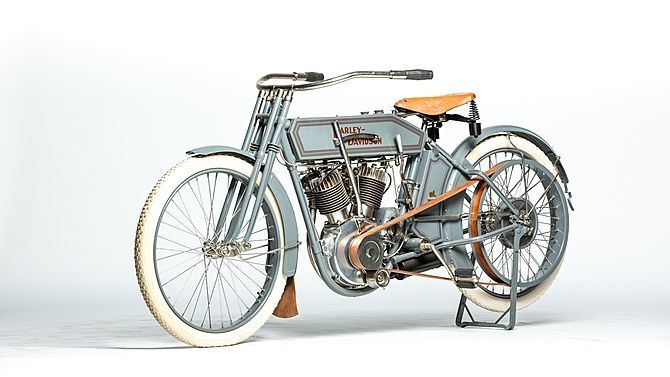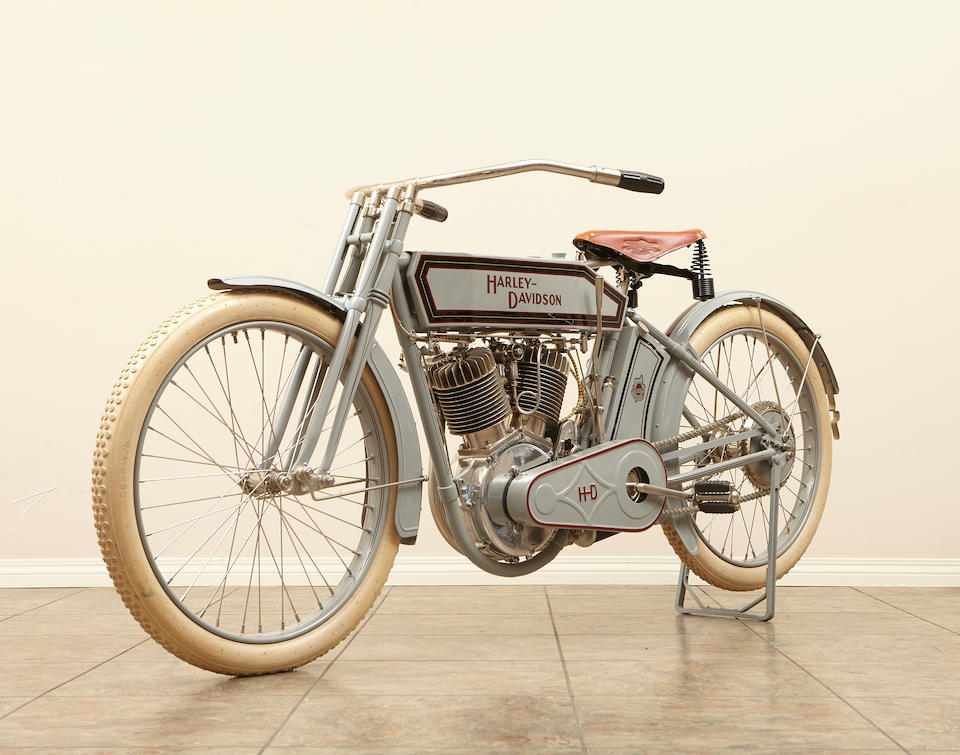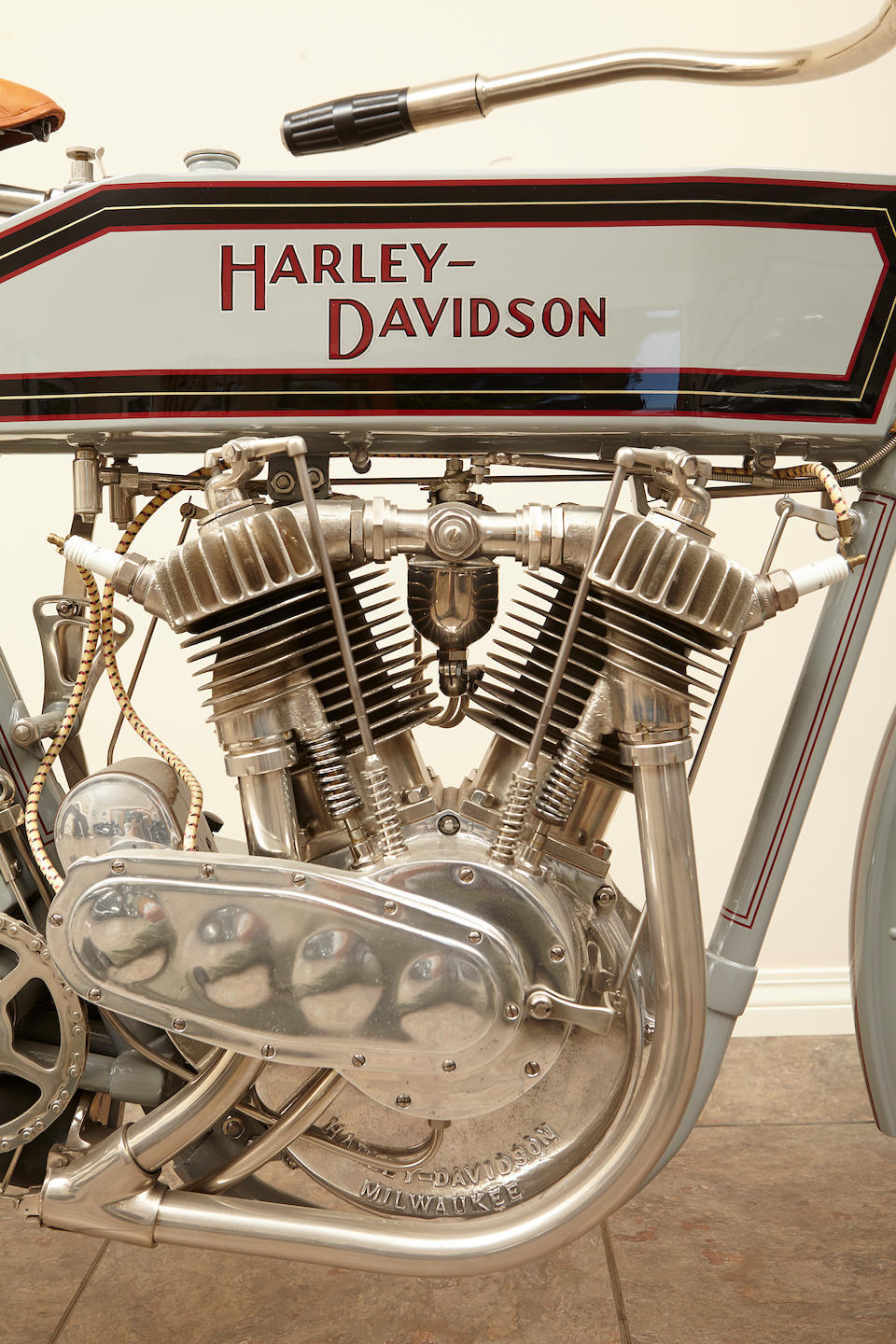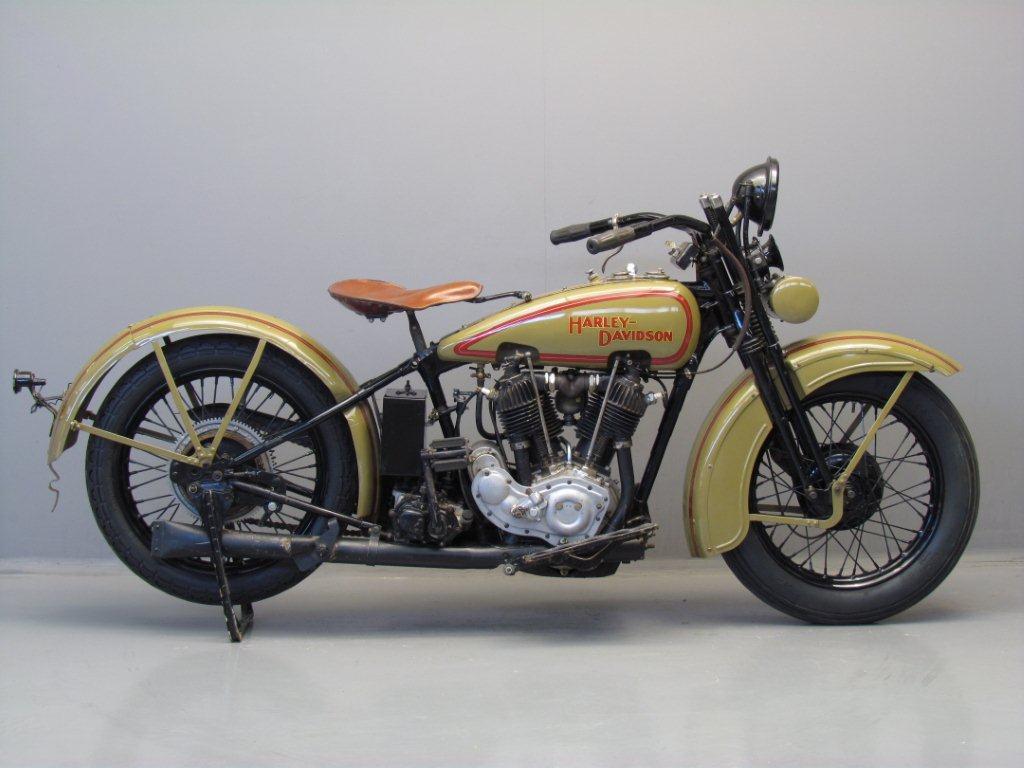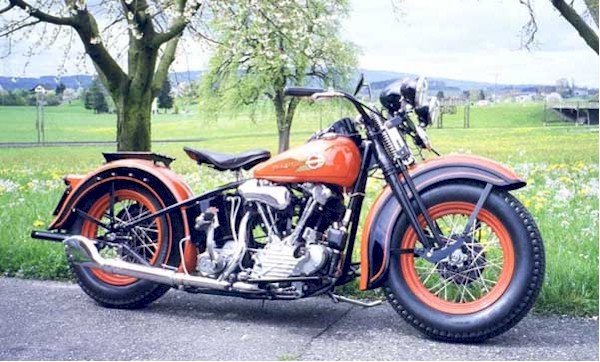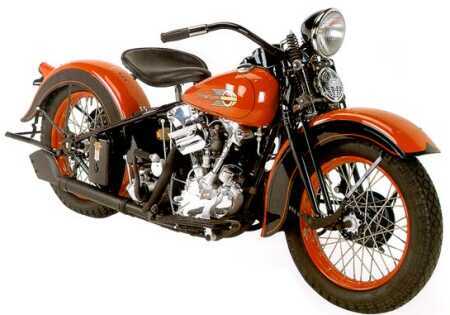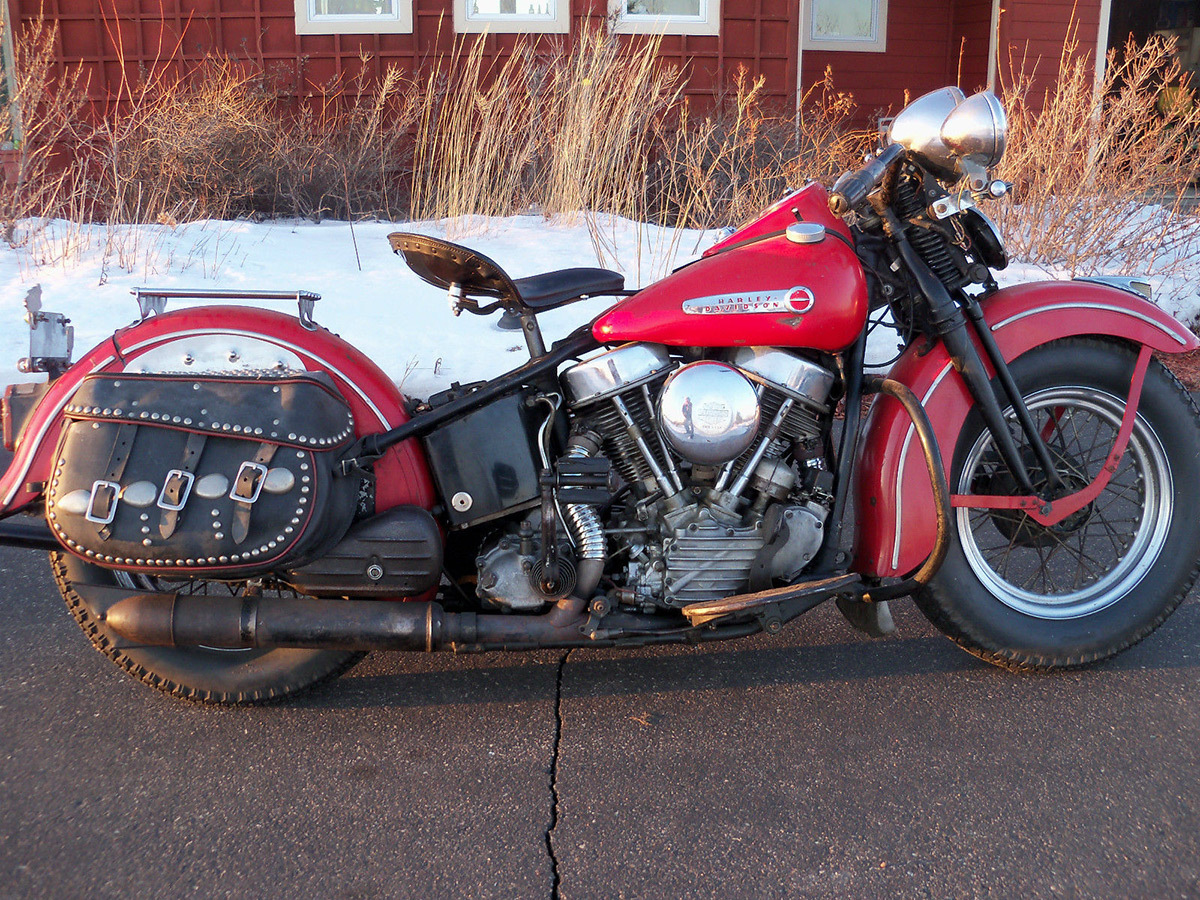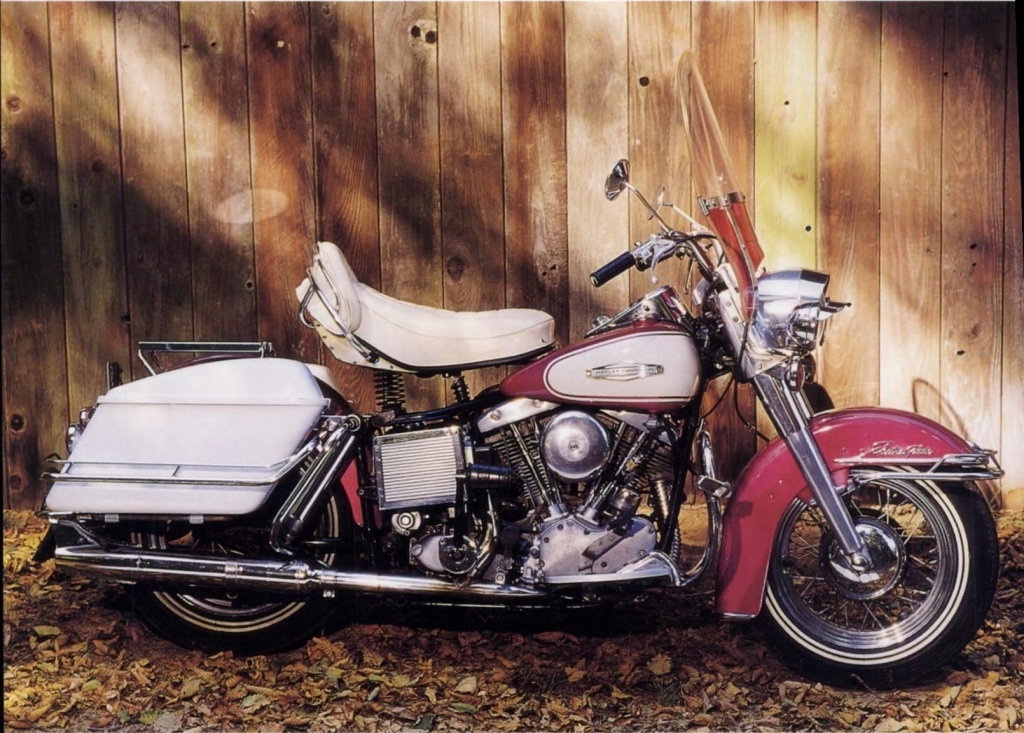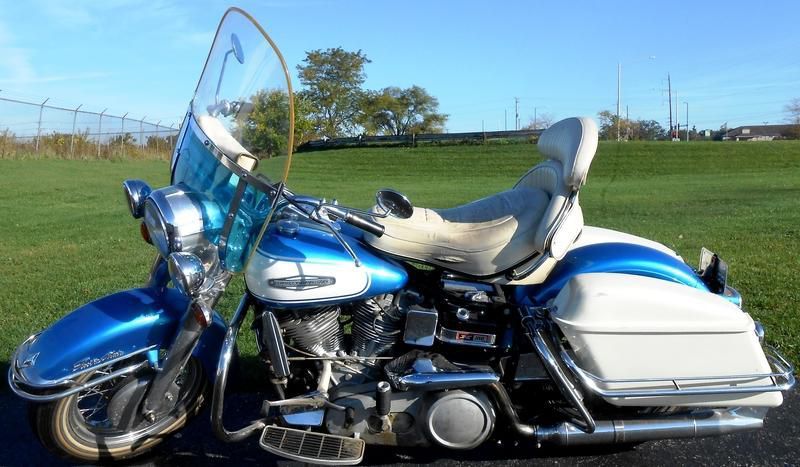1921 J
1921 saw the engine getting some work, with revised connecting rods, piston pins, rings, and pistons themselves. 1921 was also a rough year for the company itself, with the factory being closed between mid-March and mid-April, and the officers receiving a 15% cut in pay.
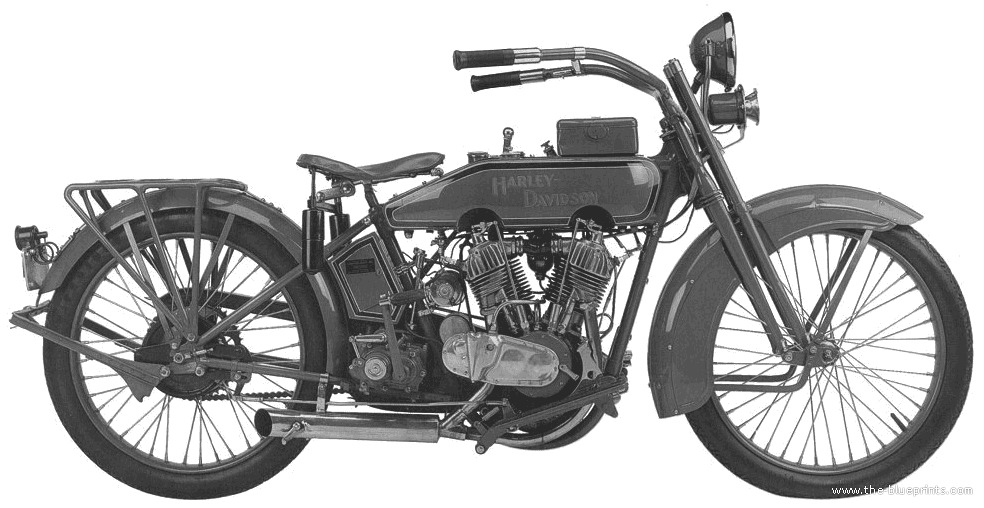
1903 Single
The first Harley-Davidson motorcycle, designed by William Harley, patterned by Arthur Davidson, and built by Walter Davidson. The company lettering, along with the double pinstripes, was done by Aunt Janet Davidson.
The bike came about as a result of William Harley’s attempts to mate an engine to a bicycle frame. It was intended to be a racer, having a bore of 3-1/8” and a stroke of 3-1/2”. As it was to be used in competition, it was built without fenders, probably to illustrate the power and reliability of the motor.
That motor was a 24.74 cubic inch, single cylinder weighing in at 28lbs. William Harley had originally created an engine that measured just over 7 cubic inches in size, but quickly discovered it wasn’t much faster than a brisk walk and needed help when climbing hills. With the bigger motor installed in the looped-frame chassis, it graduated from the motor-driven bicycle category into a quickly emerging new classification; the motorcycle.
The motorcycle found at Harley-Davidson’s Milwaukee headquarters is labeled Serial Number One. It’s widely known, however, that while labeled as such, in all likelihood, it is not the first motorcycle developed by Harley-Davidson, but the first motorcycle that was considered ready for production. It is certainly the oldest Harley-Davidson motorcycle in existence today.
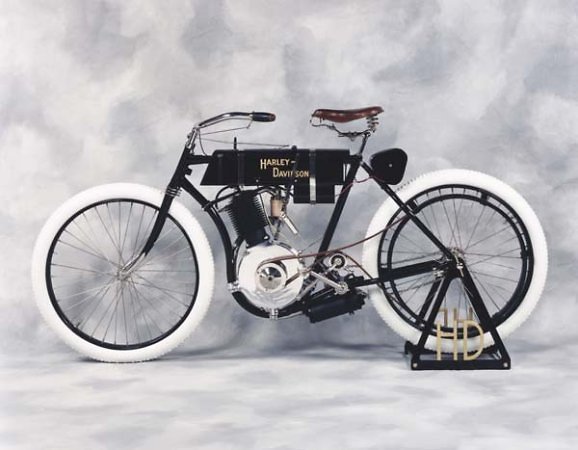
1906 Model 2
Three years after the success of the 1903 Single, Harley-Davidson released the Model 2, another single engine bike, with the displacement bumped up from 24.74ci (405.41cc) to 26.8ci(439.9cc). There was an option to go with the smaller wheels (26in vs. the 28in), as well as a hand crank designed into the engine. According to Conner, this was the year the nickname "Silent Gray Fellow" first appeared, though many attribute that to the 1911 Model 7D. Regardless, it's amusing to think that nowadays, one of the first things Harley riders tend to swap out is the quiet stock mufflers for something with a bit more rumble.
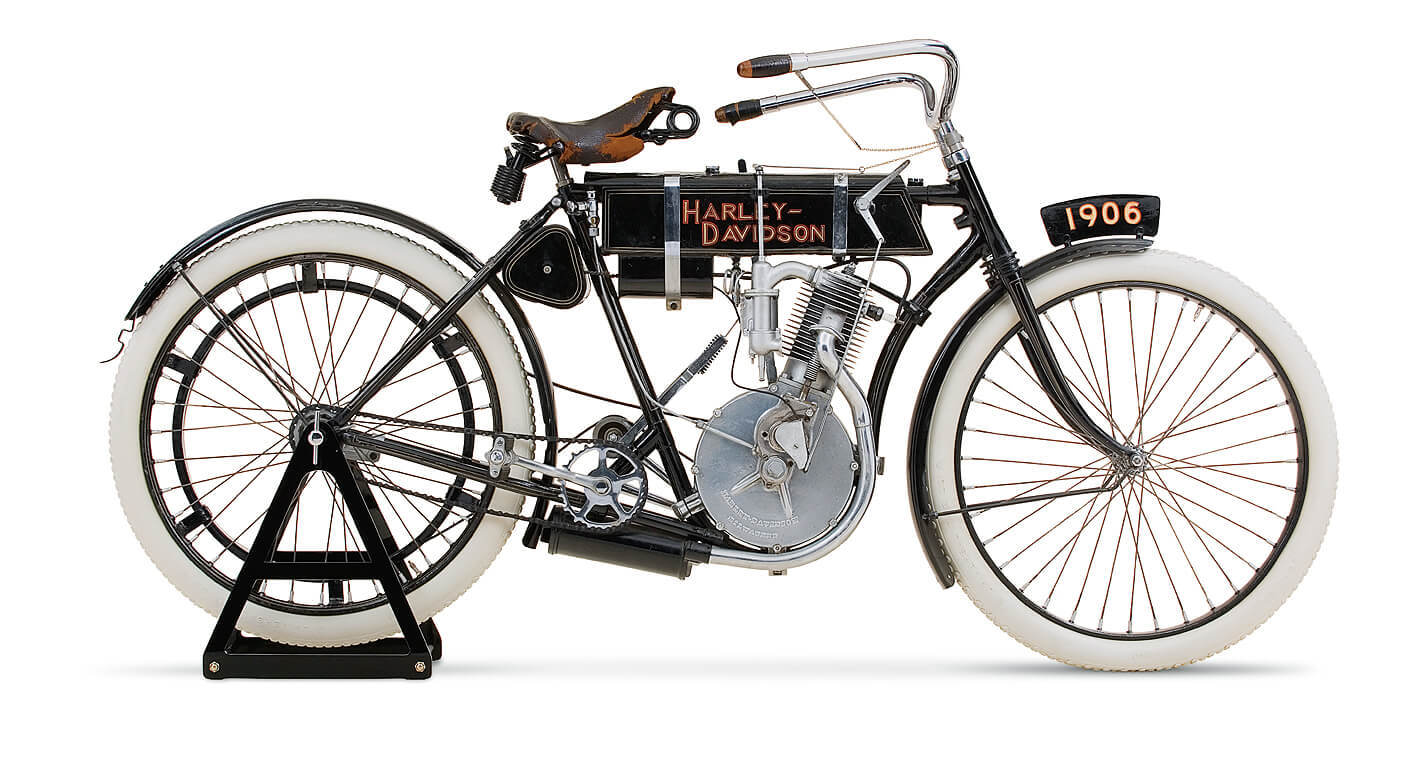

1911 Model 7-D
Learning from the flaws of the V-Twin in 1909, the 50ci F-head V-twin available on the1911 Model 7-D was the Motor Company's first successful V-twin configuration. So successful, in fact, that the V-Twin has been available every year since.
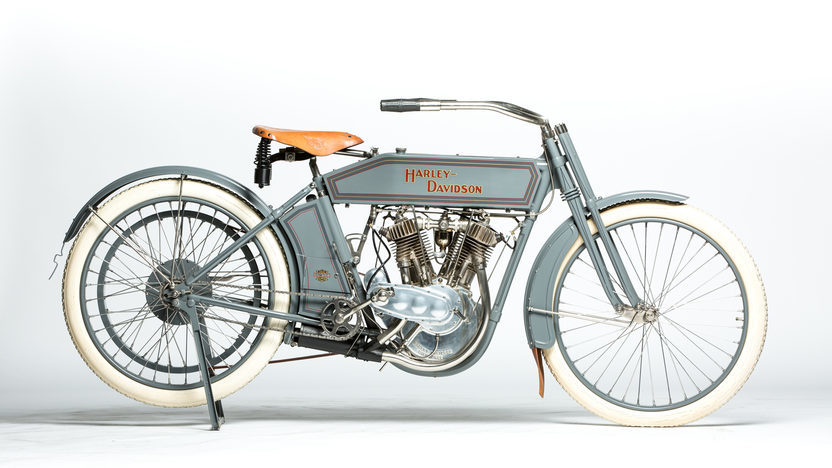


1912 X-8-E
1912 saw some serious growth for Harley-Davidson, with the construction of a new five-story building that will eventually become the Motor Company's headquarters. Within 10 years, H-D had expanded its dealership network to over 200 Dealers nationwide. H-D also started exporting motorcycles to Japan, specifically for the Japanese Army. The X-8-E shown here had a 61ci V-Twin that now came standard with the Bosch magneto, and twist-grip compression release. This was also the only year the engine had iron pistons, as opposed to the iron-alloy pistons that would follow.
The pictures here were taken from https://www.bonhams.com/auctio...
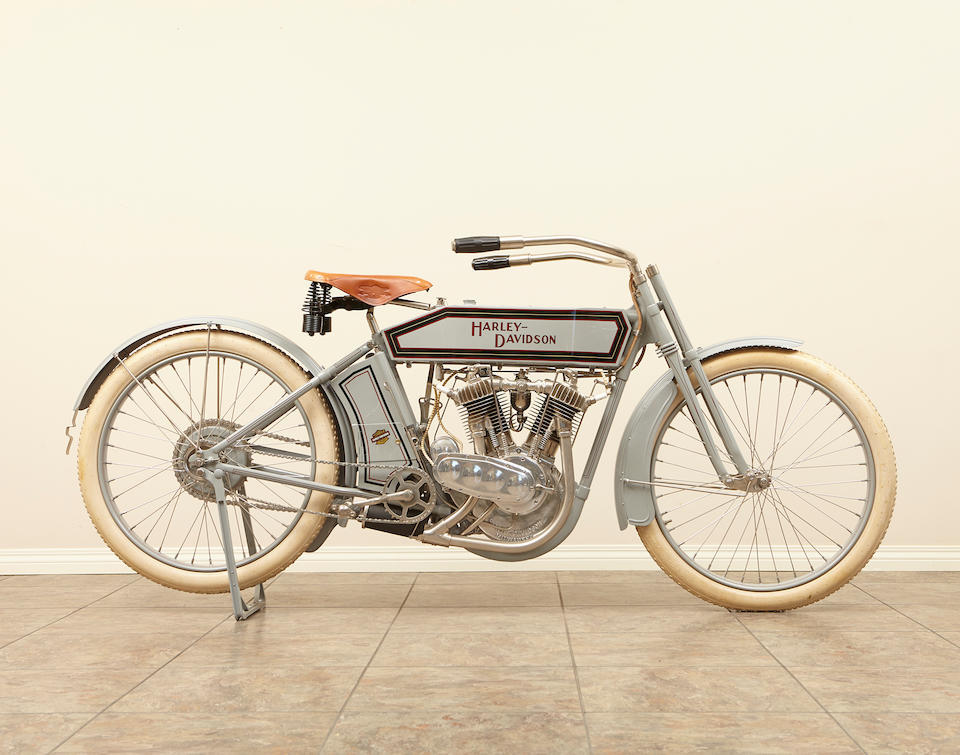


1928 JDH
Thanks to a rather sophisticated and powerful 74.2-cid V-Twin motor, the 1928 JDH “Two-Cam” was one of the fastest motorcycles available to the general public. It was available in both a stripped down and full road version, in which the latter included electrics, carburetor air cleaner, weather protection and front and rear brakes. The JDH was capable of reaching the then unheard of top speed of 85 mph. It’s no wonder many of the stripped down versions found their way onto race tracks.
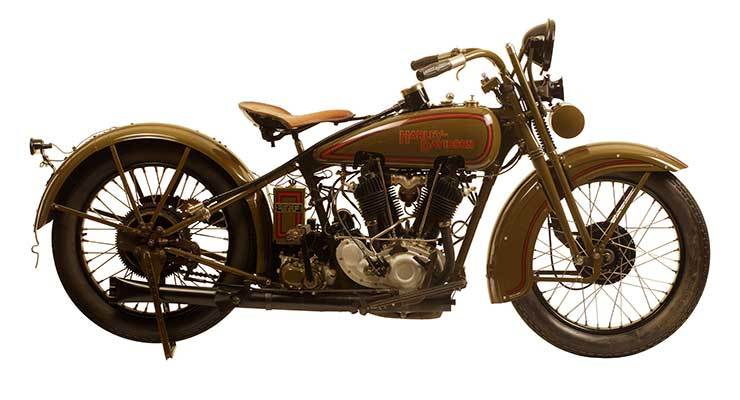


1936 EL
1936 was the year of the introduction of the Knucklehead motor, a 61ci overhead valve V-twin. Many of todays styling cues can be seen in the El model line; the twin gas tanks, the separated oil tank under the seat, and the teardrop style instrument gauges to name a few.
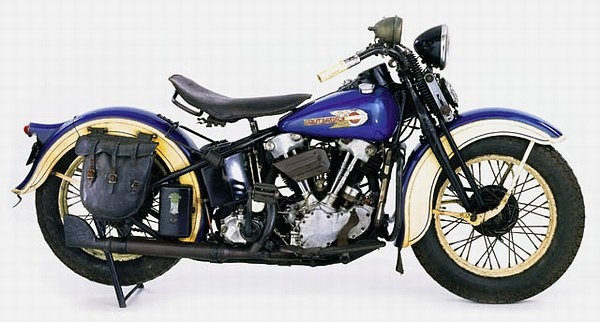


1948 FL
The big news for 1948 was a new "Panhead"-style motor, named so because the new aluminum rocker covers resembled upside-down pans. The Panhead motor was essentially a Kuncklehead lower end with the new rocker covers which featured hydraulic lifters.
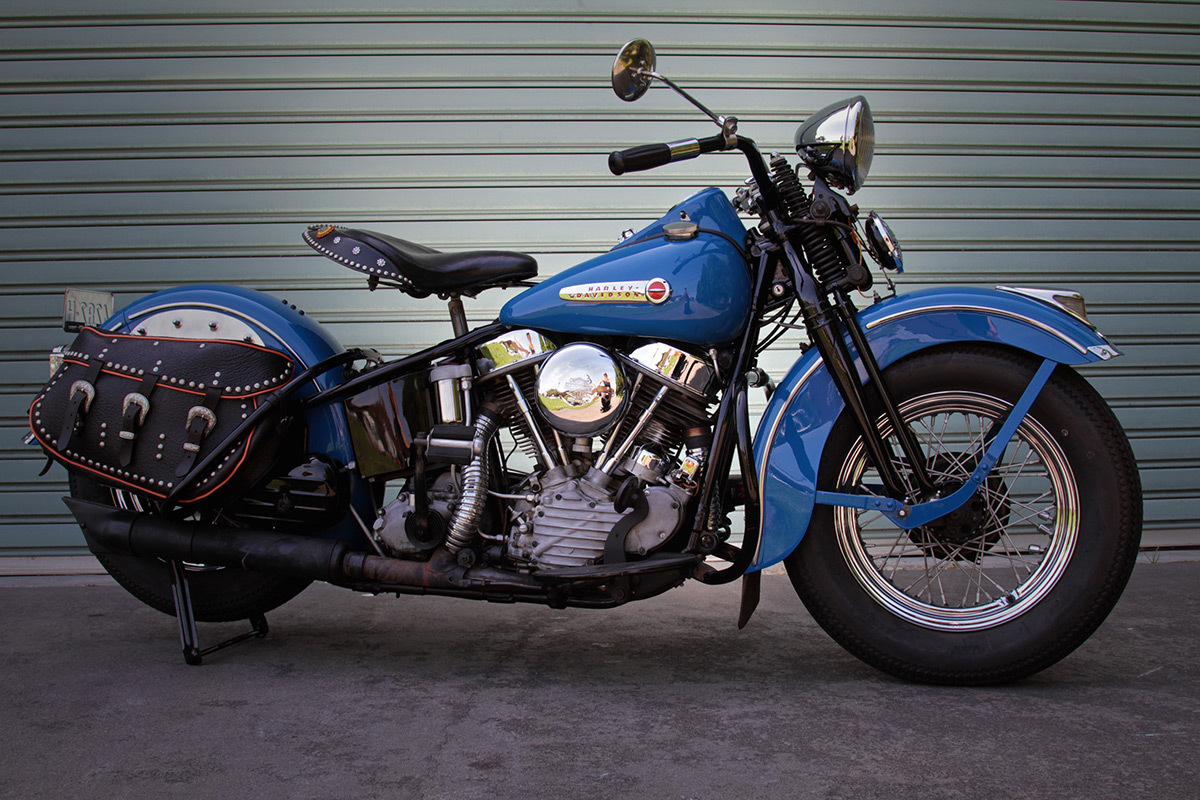


1952 Model K
The 1952 Model K can be considered the grand-daddy of the modern day Sportster. The Model K was developed with a revised flat-head engine and a new four-speed transmission contained in the same castings that would eventually be used for the Sportster. There were many other design cues and features, such as the gas tank, fenders and frame, that would also be utilized by the Sportster, which was introduced in 1957.
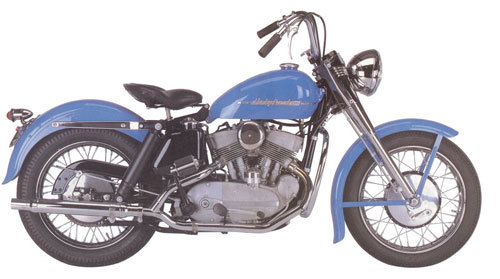
1966 FLH
The big news for 1966 was the introduction of the new 74ci Shovelhead OHV engine. Featuring distinctive rocker covers that again gave the motor its name, the engine also sported new cylinders and redesigned pushrods. The FLH came in two models: FLHFB, which included the four-speed foot-shifted transmission, and the FLHB, which came with the four-speed hand-shifted transmission.
